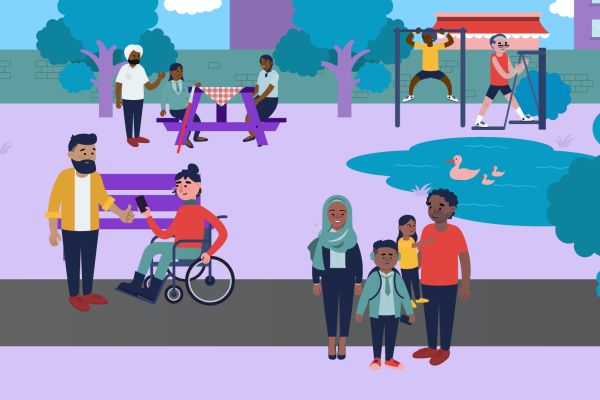Like authors, researchers tend to research what they know about, subjects that matter to them and are personally meaningful. In 2021, I completed my PhD in psychoanalysis on a topic that was close to my own heart and was motivated by both personal and professional interests.
My research explored how UK psychoanalytic therapists working today understood and thought about same-sex sexual orientation both theoretically and clinically; and how the role of institutional psychoanalytic training shaped the views and practice of UK psychoanalytic psychotherapists working with LGBTQ+ clients. But why did I choose this topic and why was it important for me to research it?
To answer this, I must return to the summer of 2011, when I met with a senior therapist at a well-known psychoanalytic psychotherapy organisation to discuss me potentially training to become a psychoanalytic psychotherapist. We’d been chatting informally for over an hour about my motivation to train, my educational background, my family life and my interests. I’d been open about being a gay man throughout the meeting and my interviewer had, in no way, indicated any homophobia. My interviewer was polite, encouraging and engaged in everything I had to say, and he expressed a sincere optimism that I would apply for training sometime in the future.
However, as the meeting came to a close, my interviewer advised that I shouldn’t let my sexuality put me off applying for the training. These final remarks were unexpected and I was shocked. Why would my sexuality put me off applying? The interviewer had intended these words in a helpful way but also perhaps to protect me, or at least alert me that there might be trouble ahead.
Some initial research revealed that, historically, psychoanalytic psychotherapy had pathologised same-sex sexual orientation and, in some cases, excluded LGBTQ+ individuals from training as therapists. My curiosity had been ignited (not to mention my indignation and anger)! Although my MSc dissertation, written in 2013, found that psychodynamic theory and practice had become less pathologising over time, the overall picture remained mixed at best. I believed the subject was ripe for empirical investigation and further reappraisal, and so I embarked on my PhD.
My PhD research found that psychoanalytic therapists needed to be better acquainted with the wider cultural and scientific evidence about sexual orientation and that UK psychodynamic training organisations had more to do to create learning and professional environments that were non-discriminatory to LGBTQ+ individuals.
As an openly gay man wondering about making a clinical career as a psychoanalytic psychotherapist, undertaking this research was difficult and challenging for me to take on, interpersonally – having those frank conversations with psychoanalytic psychotherapists about the profession’s attitudes towards LGBTQ+ clients, trainees and practitioners.
However, the research really mattered as a starting point for thinking about how to improve attitudes within the profession. The findings have been used by the professional body, the British Psychoanalytic Council (BPC), to develop policies for a more inclusive psychoanalytic psychotherapy profession for LGBTQ+ individuals who wish to train, are training or train others in psychoanalytically-informed practice.
Read more...

Mental Health Research Matters
We believe that counselling changes lives and that's why we’re supporting the national #MentalHealthResearchMatters campaign. Check out our blogs, articles and other resources.

Promoting research
Research is important for clients, for practitioners and politically to continue to demonstrate that counselling changes lives.

Blogs and vlogs 2022
News and views from members, staff and clients
